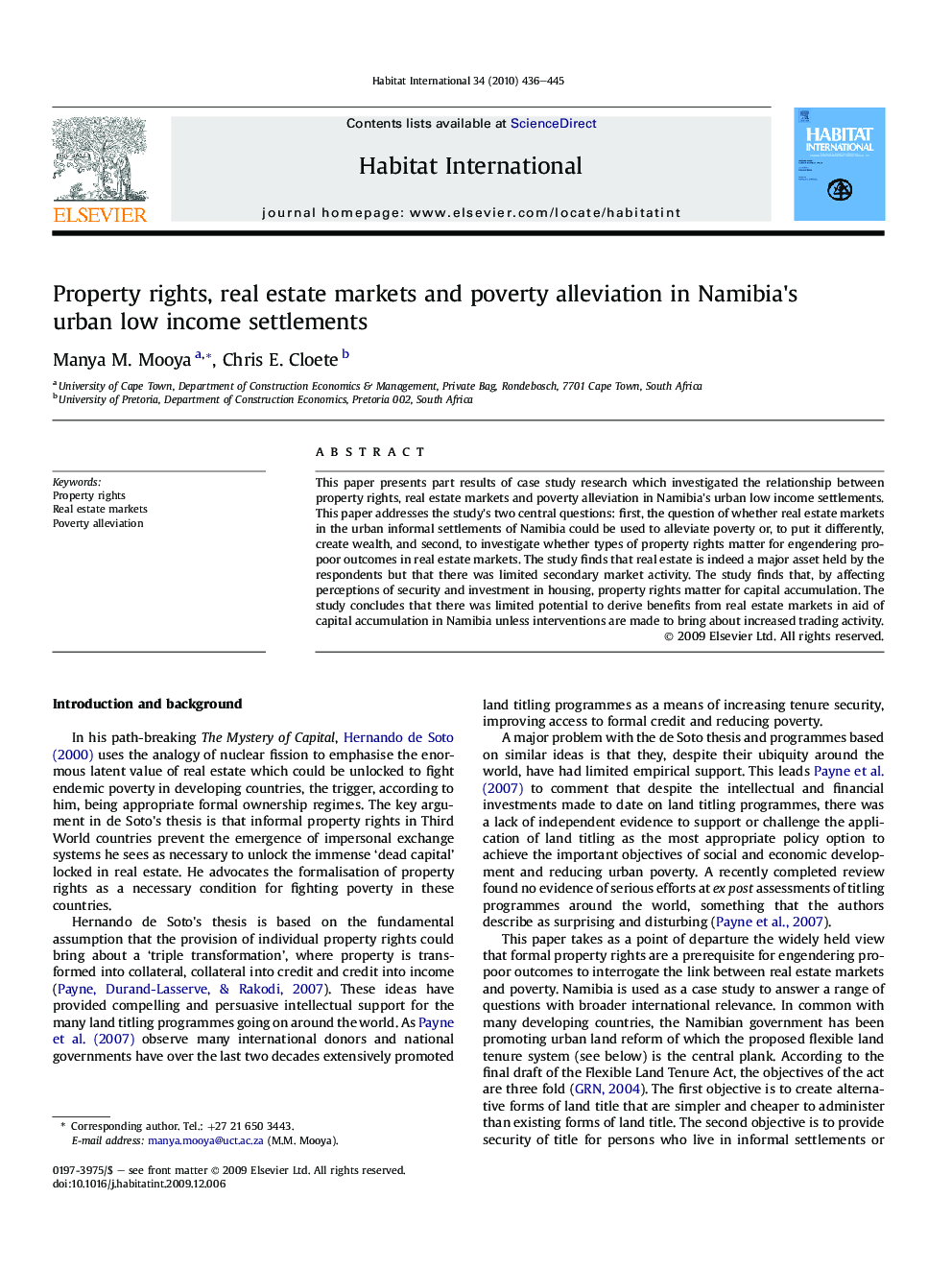| Article ID | Journal | Published Year | Pages | File Type |
|---|---|---|---|---|
| 1048275 | Habitat International | 2010 | 10 Pages |
This paper presents part results of case study research which investigated the relationship between property rights, real estate markets and poverty alleviation in Namibia's urban low income settlements. This paper addresses the study's two central questions: first, the question of whether real estate markets in the urban informal settlements of Namibia could be used to alleviate poverty or, to put it differently, create wealth, and second, to investigate whether types of property rights matter for engendering pro-poor outcomes in real estate markets. The study finds that real estate is indeed a major asset held by the respondents but that there was limited secondary market activity. The study finds that, by affecting perceptions of security and investment in housing, property rights matter for capital accumulation. The study concludes that there was limited potential to derive benefits from real estate markets in aid of capital accumulation in Namibia unless interventions are made to bring about increased trading activity.
